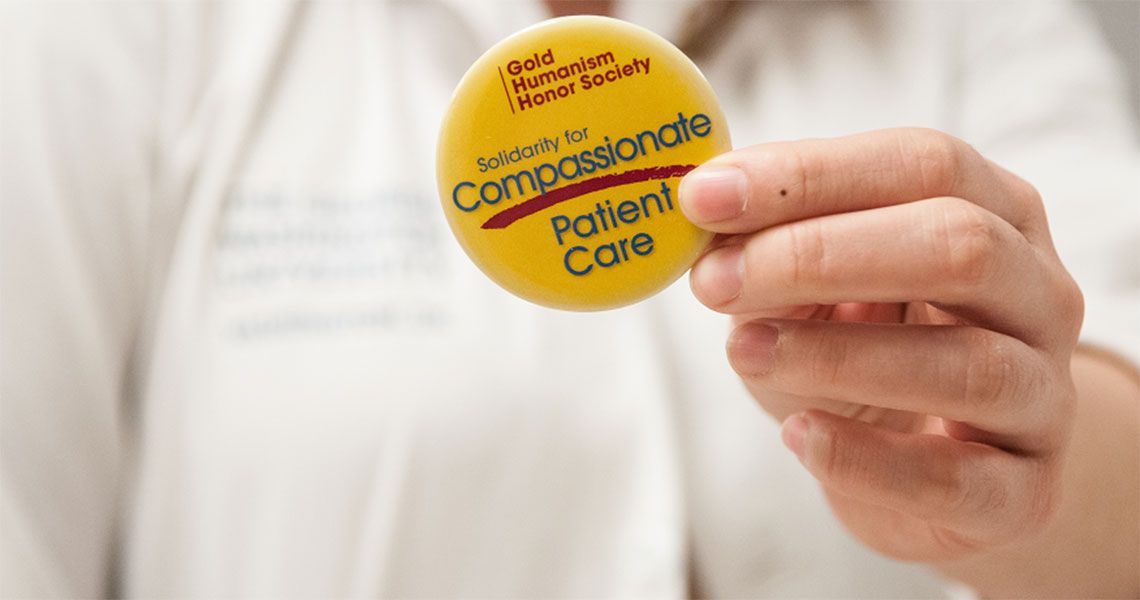The patients on the fourth and fifth floors of GW Hospital weren’t expecting the visit they received from second-, third-, and fourth-year M.D. students from the GW School of Medicine and Health Sciences (SMHS) on Monday, Feb. 15. If anything, they anticipated a continuation of the running dialogue about their aches and pains, medical conditions, and prognoses; the students, however, offered something else.
“I think that it was almost shocking to the patients initially when we came to talk to them,” said Miriam Toaff, a second-year medical student at SMHS. “At first, they thought that they would have to tell us about their medical problems, and we said, ‘We’re happy to talk about that, if that’s what you want to talk about, but we really want to learn more about you.’ The patients lit up.”
The conversations were part of the “Tell Me More” project, a component of the Gold Humanism Honor Society’s (GHHS) Day of Solidarity. As Zach Spoehr-Labutta, a fourth-year M.D. student at SMHS and organizer of this year’s Day of Solidarity, explained, the GHHS “works to try to integrate humanism back into medicine.” In the case of the Day of Solidarity, medical professionals take time to learn about patients as more than just a diagnosis.
“I think [the Day of Solidarity] is important because it changes the script, and it shifts the power differential,” Spoehr-Labutta said. “We get used to our medical scripts, both patients and doctors. It’s much nicer [when you’re asking invasive questions] when you have a personal connection; you feel like someone gets you as a person.”
This year, questions ranged from “what are your hopes” and “what are your successes” to what fourth-year SMHS medical student Elana Neshkes termed her favorites: “What brings you strength?” and “what are the things you’re proud of?” Students then crafted the answers into a few sentences, which they wrote on a poster to hang in the patient’s room.
For Spoehr-Labutta and his classmates, the experience seemed to reinforce their approach to patients. Toaff and Neshkes described their patients’ delight at the experience — “One of my patients said, ‘Oh, I had such a lovely time talking to you!’ Neshkes said — and Toaff believes that treating a patient as “human” has a greater impact, both emotionally and physically.
“Giving a patient hope, letting them be who they are, I’m sure it improves their outcome,” she said.



